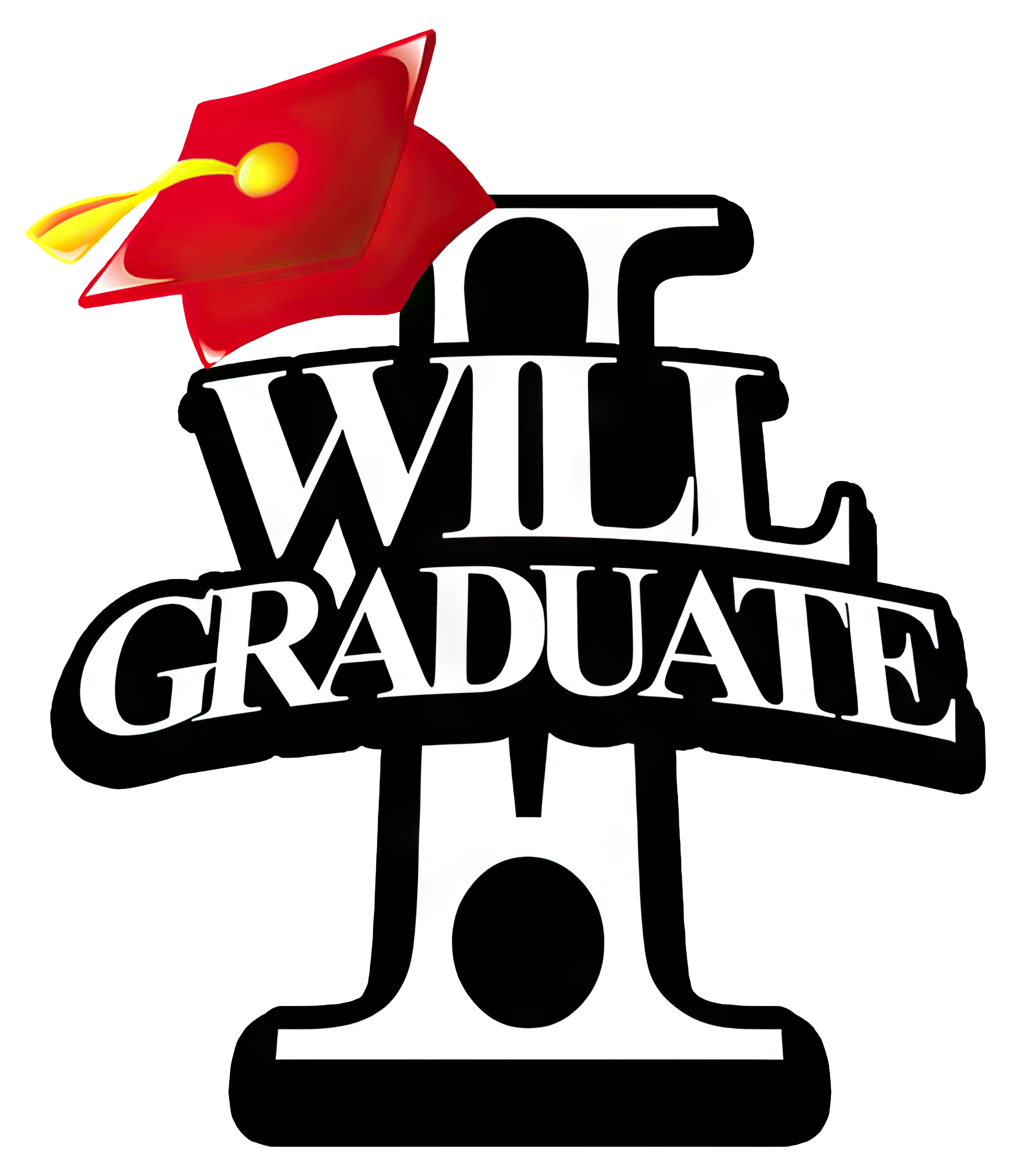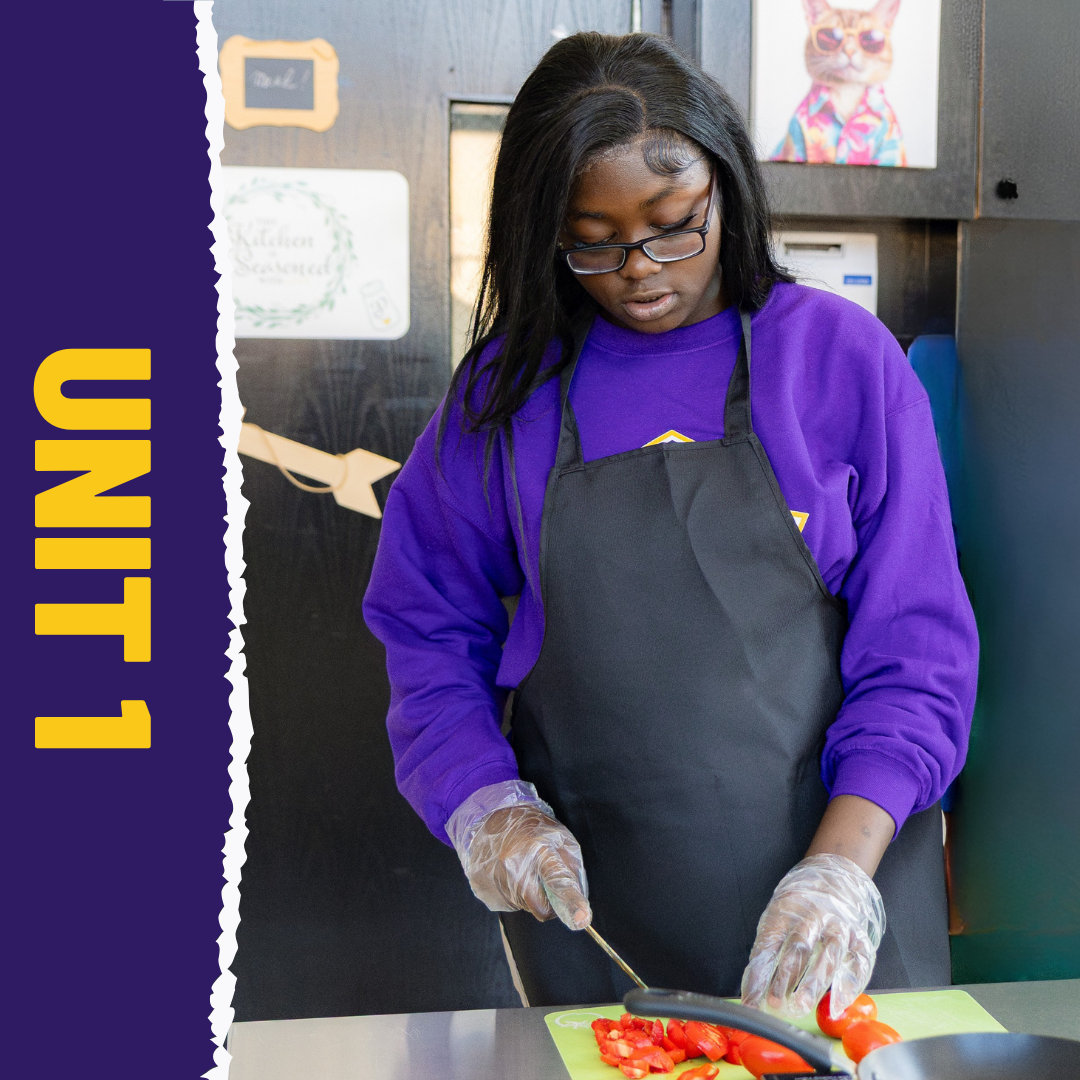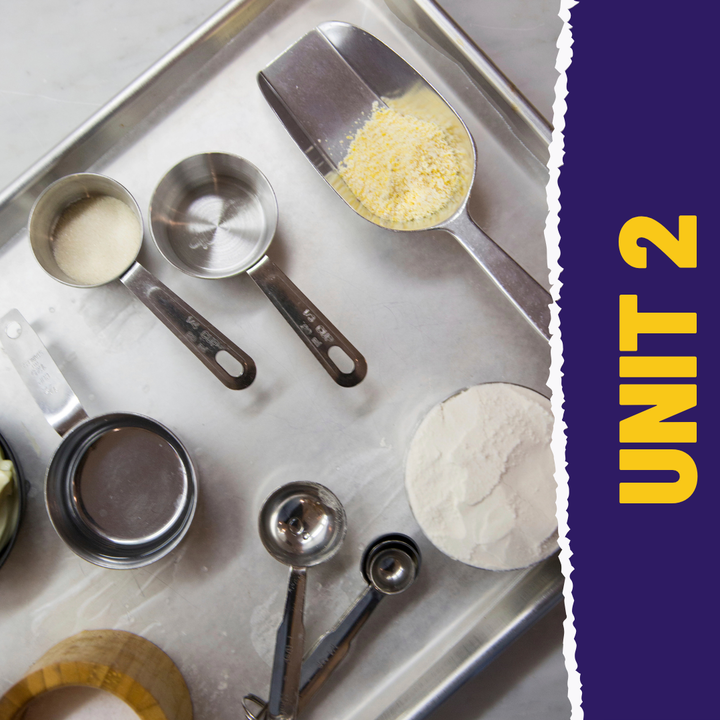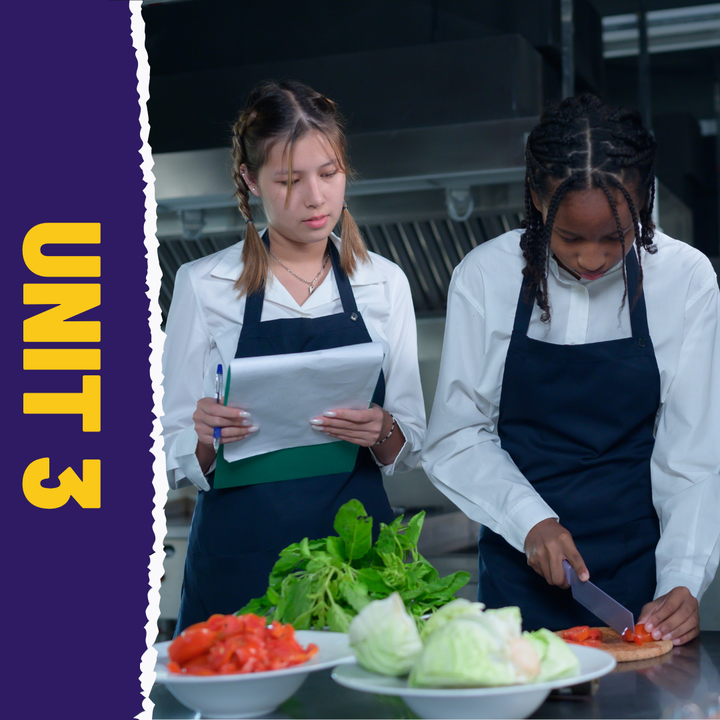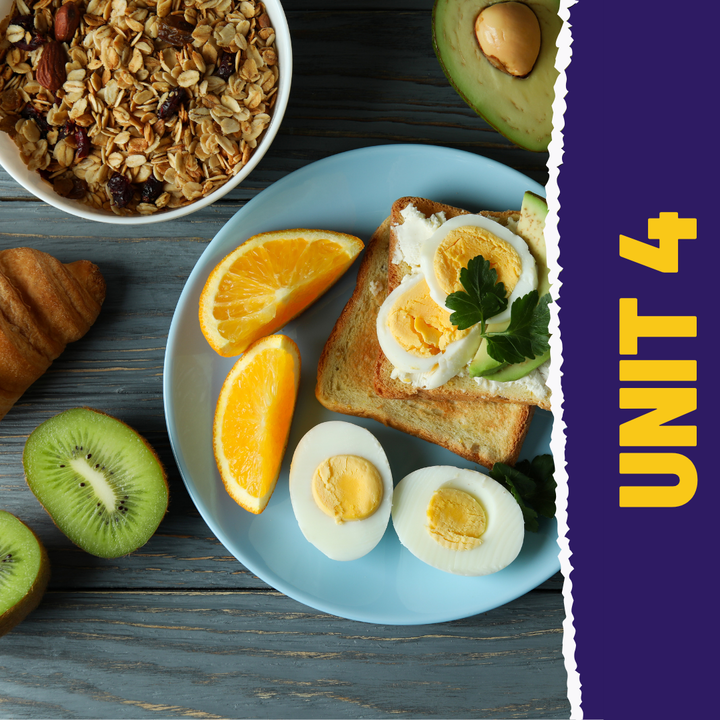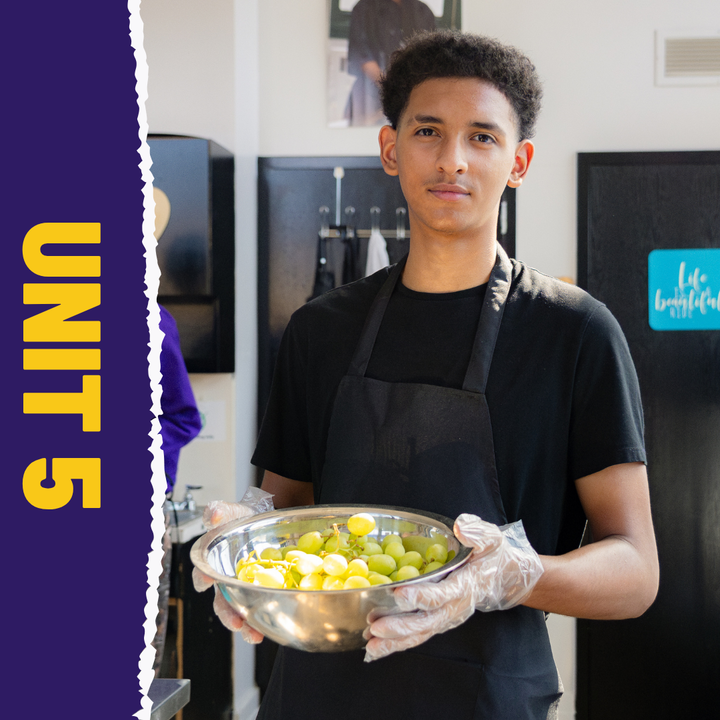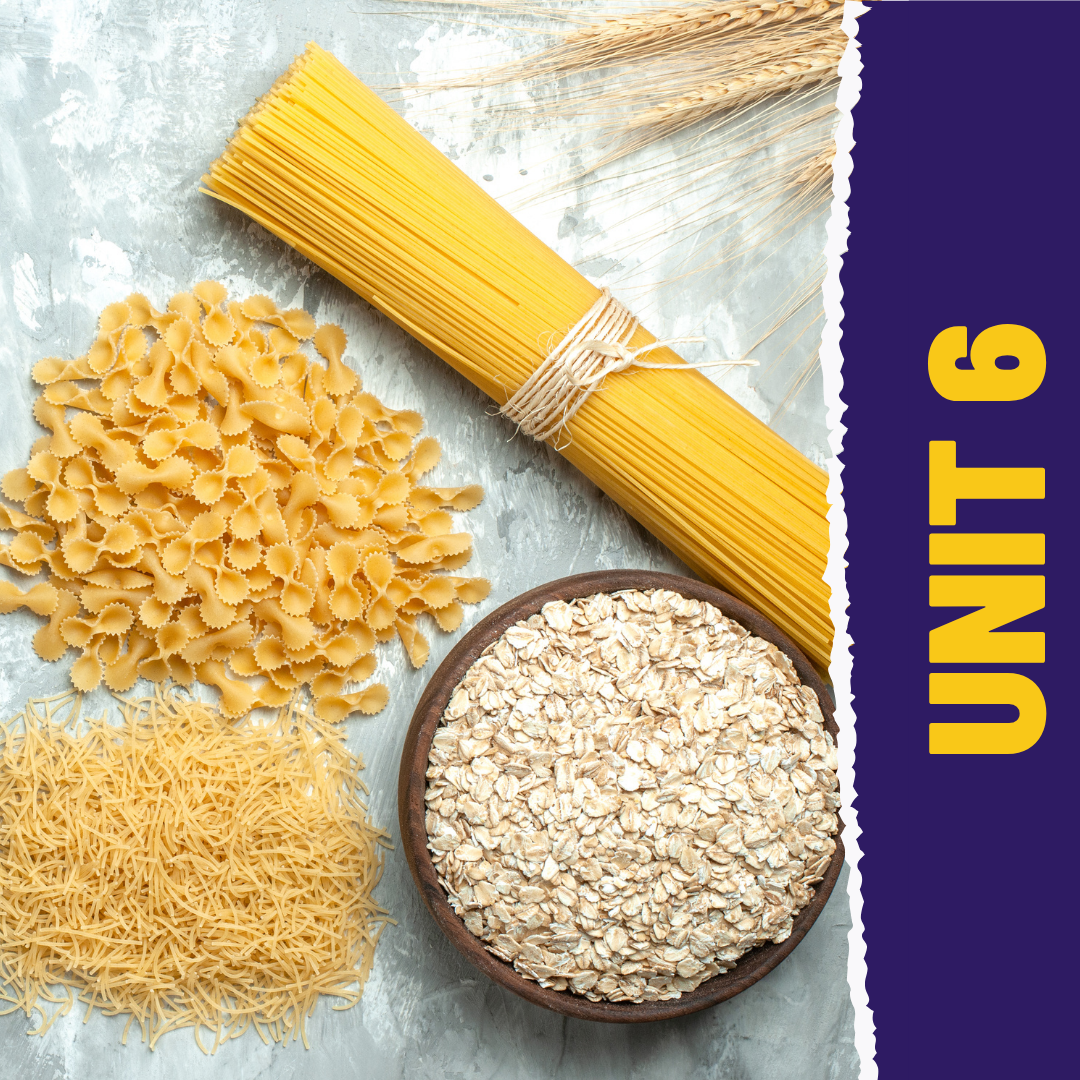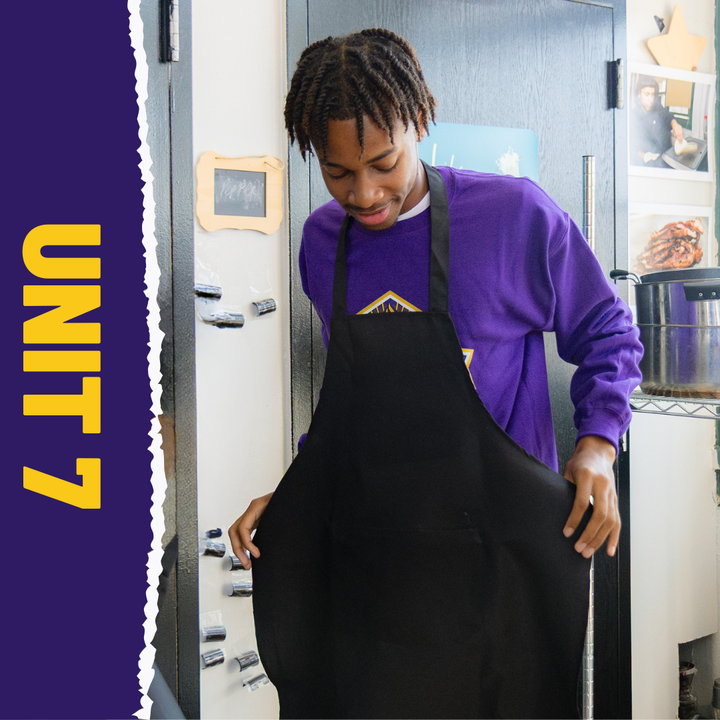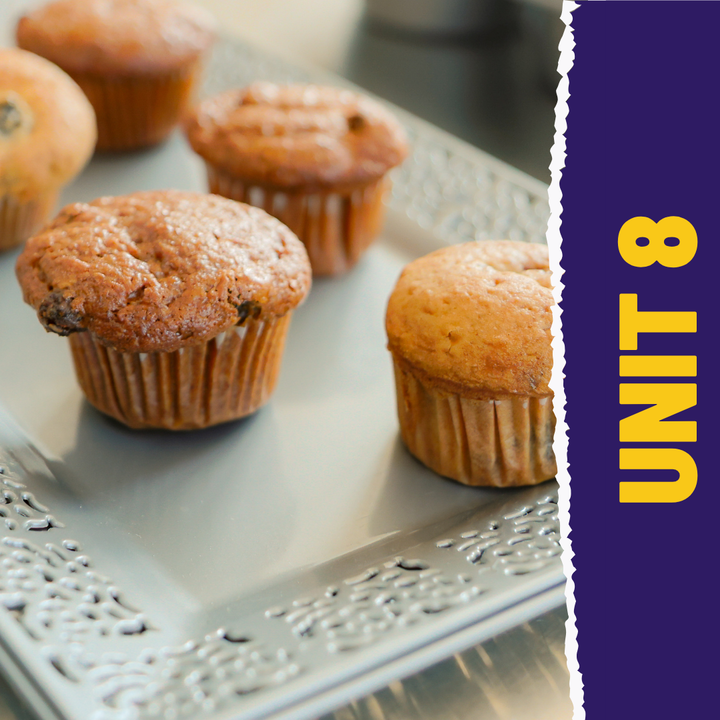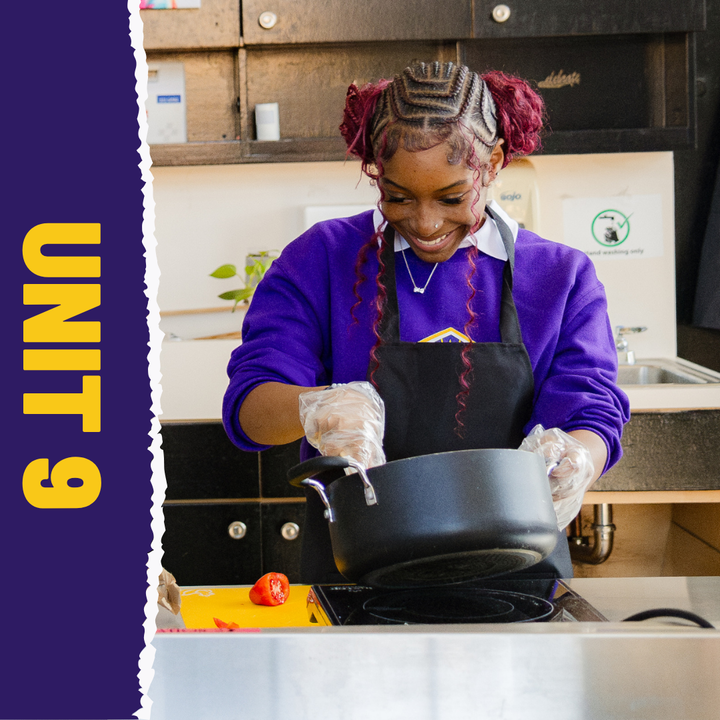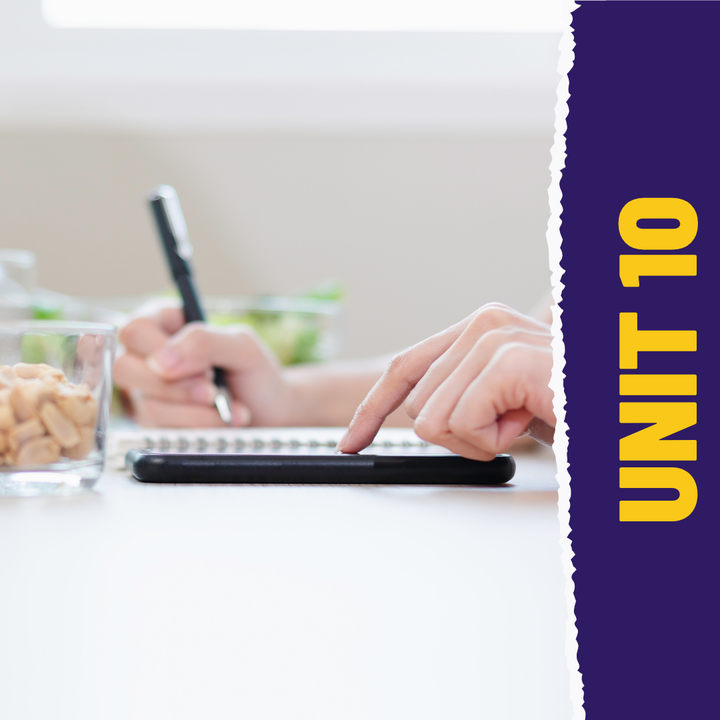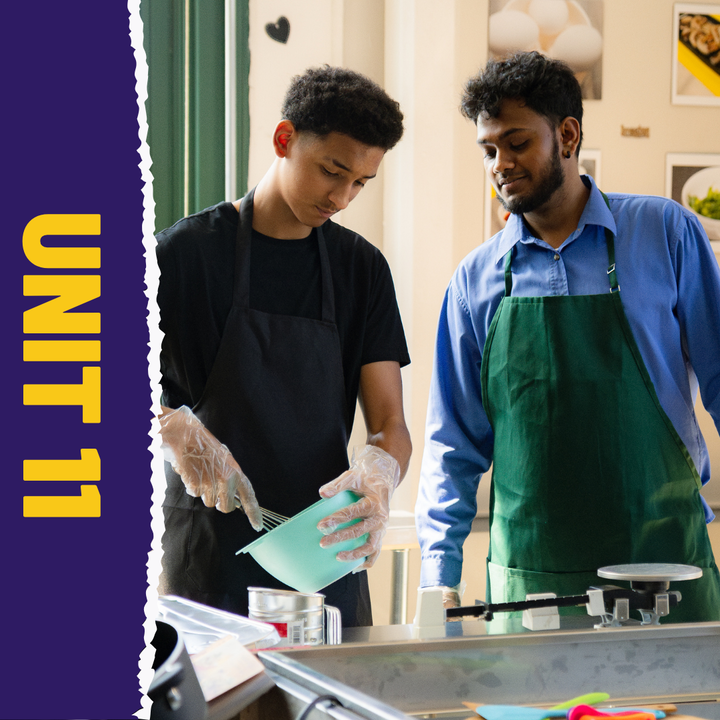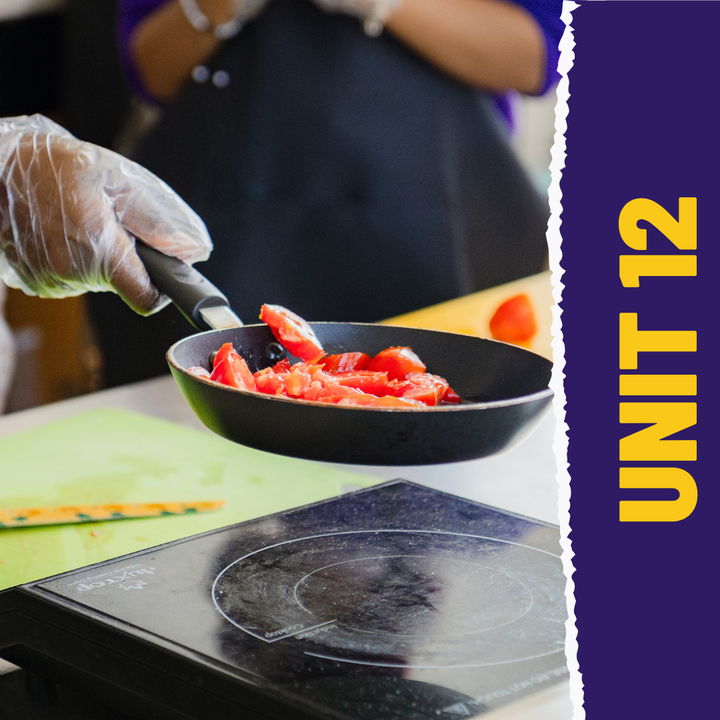Unit 1 – Introduction & Safety (Weeks 1–3)
- Kitchen orientation and sanitation.
- Understand class expectations, grading, and kitchen protocols.
- Demonstrate proper handwashing and sanitation.
- Identify and safely use basic kitchen equipment.
- Learn knife safety, cutting techniques, and common terms (dice, julienne, mince).
Activities: Kitchen tour & safety scavenger hunt, Handwashing demo with UV germ lotion, Knife skills practice (carrots, celery, onions), Breakfast (eggs, bacon, pancakes)





